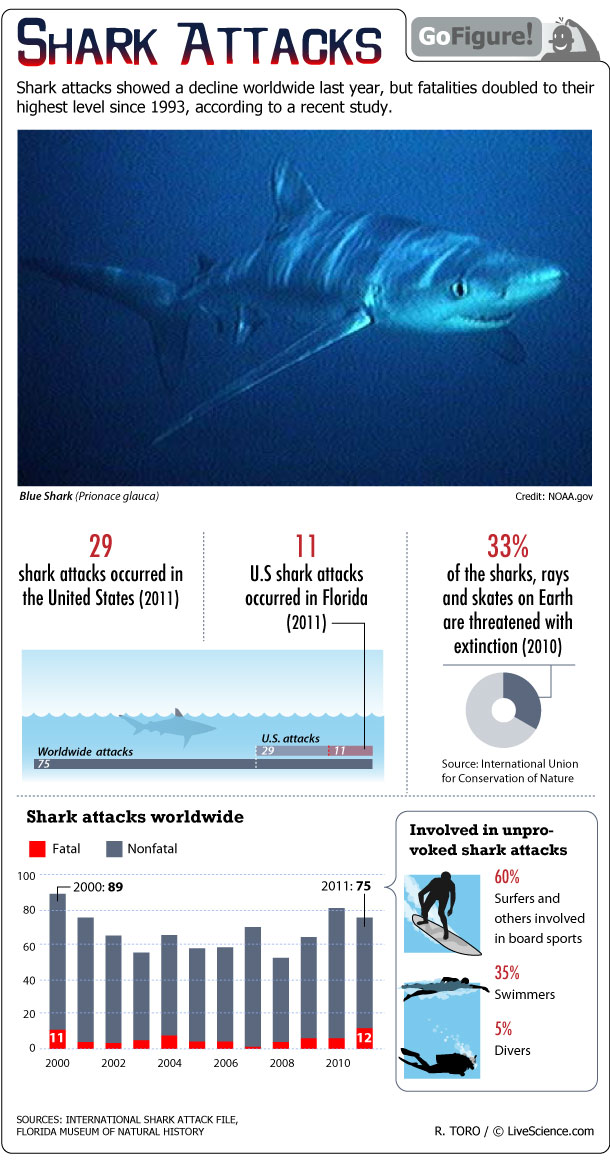Number of Shark Attacks Down, Fatalities Up (Infographic)

Get the world’s most fascinating discoveries delivered straight to your inbox.
You are now subscribed
Your newsletter sign-up was successful
Want to add more newsletters?
Join the club
Get full access to premium articles, exclusive features and a growing list of member rewards.
While shark attacks continued a downward trend in the United States, there has been an uptick in shark-related deaths worldwide, according to a report released in February 2012.
The spike in shark-attack fatalities — all of which occurred outside of the United States — suggests tourists are venturing to more remote places, said ichthyologist George Burgess, director of the University of Florida's International Shark Attack File, which released the 2011 shark-attack numbers.
In fact, the global shark-attack fatalities, which reached 16 percent in 2011, doubled the number of fatalities in 2010. For comparison, the global fatality rate for the last decade has averaged just under 7 percent.
Such lethal attacks can send the media abuzz. For instance, in October 2011 after the attack on an American diver by a great white shark off the coast of Australia, the rumor mill swirled with talk of a "rogue man-eating shark" that developed a taste for humans, killing three men over the previous two months. The reality: Three separate sharks were likely involved in the attacks. And rather than hunting down human meat, the sharks were likely in the midst of their annual migration (they follow the whale migration paths up the western Australia coast), which would bring them into contact with humans.
And in 2010, a kite surfer killed by a swarm of sharks off the coast of Florida made big headlines. Though terrifying, scientists emphasized these attacks are rare. According to the International Shark Attack File (ISAF), the risk of being bit by a shark is about the same as the chances of getting bit by animals in New York City, hit by lightning or being attacked by an alligator, that is, if you go in the water.
Though shark attacks, and associated human fatalities, make splashy headlines, Burgess noted people are a much bigger threat to sharks than the other way around.
"We're killing 30 [million] to 70 million sharks per year in fisheries — who's killing who?" Burgess said. "The reality is that the sea is actually a pretty benign environment, or else we'd be measuring injuries in the thousands or millions per year."
Get the world’s most fascinating discoveries delivered straight to your inbox.
According to a 2010 study by the International Union for Conservation of Nature, one-third of the sharks, rays and skates on Earth are threatened with extinction.
 Live Science Plus
Live Science Plus











